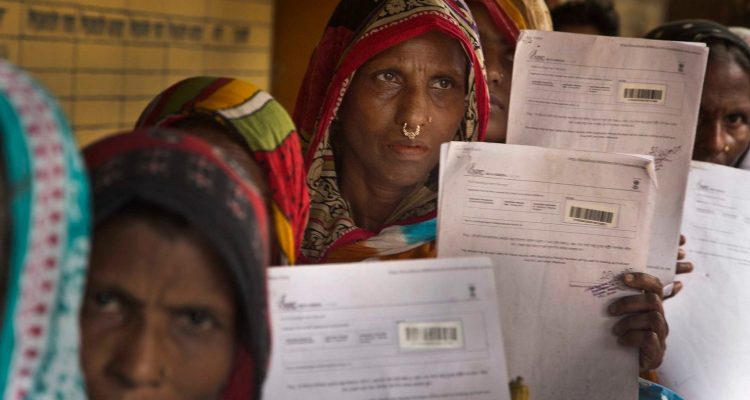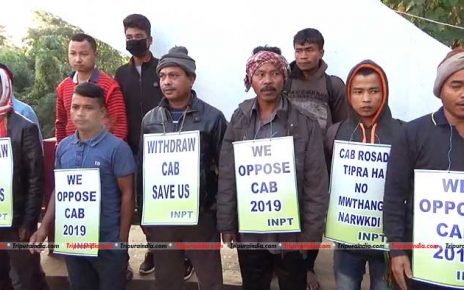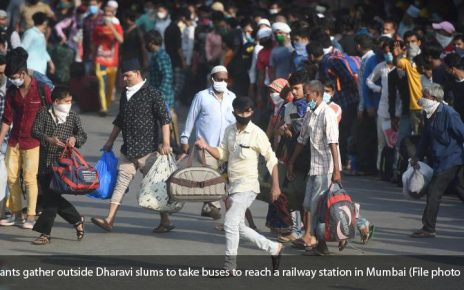Available at Asia Sentinel
23 September 2019
Prime Minister Narendra Modi government’s plan to expel millions of illegal immigrants is expected to sow chaos and confusion across the country, with critics charging that a hurriedly compiled database endangers hundreds of thousands of indigenous citizens, includes many who shouldn’t be on it, and is being used to exclude bona fide Muslims.
Emboldened by a sweeping Hindu nationalist victory in elections that began in April, the Union government has taken up the issue of expelling undocumented migrants in earnest. Although the government has been pushing the policy in the eastern state of Assam for years, the nationalist Home Affairs Minister, Amit Shah, told Parliament that immigrants are fair game across the country.
“Illegal immigrants living on every inch of this country will be deported according to the law,” Shah told the upper house of parliament.
The haphazard and hurried process of assembling the National Register of Citizens’ nationwide database, however, is believed to have excluded many indigenous families and marked them for expulsion, while uncounted more managed to falsify papers allowing them to stay or arrived prior to the cutoff date, according to critics. Other critics charge the database is being used to exclude Muslim citizens from the country.
Illegal immigration has thus become a global flashpoint, its effects stretching from Myanmar, where hundreds of thousands of Rohingya have been forcibly expelled into Bangladesh, to southern Europe and other regions. US President Donald Trump has made illegal immigration the single biggest issue of his presidency. Modi, now visiting the United States, expects no criticism from Trump over the decision to expel migrants.
In India, President Ram Nath Kovind in a recent address to Parliament warned that the government fears security threats by illegals and will seek to implement the NRC database across the country on a priority basis. Modi is expected to launch the NRC in Assam, where the NRC has been updated for the first time since 1951, excluding more than 1.9 million undocumented aliens. Assam is the home of a huge detention center being built in Gowalpara, in the western part of the state adjacent to the Bangladesh border, to house declared foreigners. Currently, Assam has six functioning detention centers surrounded by red-painted boundary walls 3 meters or higher and watch-towers. At least nine more such centers are proposed in Assam.
The fate of those without credentials now hangs on foreigner’s tribunals and subsequent higher court orders. If they fail to prove their Indian citizenship, they are to be sent to the detention centers, the seventh of which is now under construction with the area of seven soccer fields together.
In principle, the purpose of updating the NRC was to prepare a list of genuine Indian citizens. The hectic process was also meant to identify illegal migrants, most of whom fled to Assam after 25 March 1971 when Bangladesh split away from Pakistan, forming its own nation in a bitter divorce that sowed chaos.
The Union government mandated that every resident in Assam apply to include their names in the updated NRC. Directed and monitored by the Supreme Court of India, more than 33 million residents applied. The process started in May 2015 and ended on 31 August of that year. More than 50,000 Assam government employees, supported by over 7,000 data entry operators, scrutinized the applications.
All residents or their descendants who appeared in the 1951 NRC, voters’ lists, or other relevant government documents issued prior to 24 March 1971 or their dependents were recognized for inclusion.
The prescribed cut-off date was taken from the historic Assam Accord, which was signed in 1985 by leaders of an anti-foreigner movement in the presence of the then-Prime Minister Rajiv Gandhi.
The final draft of the national register of citizens was completed on August 31. It excludes 1.9 million people, most of whom probably will be declared foreigners after exhausting the judicial processes and thus are expected to land in detention centers.
Mainstream organizations in Assam have expressed dissatisfaction with the process, alleging errors in the exclusion of indigenous families and inclusion of illegal foreigners. Assam Public Works, a rights NGO that filed the original writ, appealed for revision of the voters’ list in a bid to remove the names of illegal migrants.
APW chief Abhijit Sarma argued that the database will help illegal migrants, most of them Bangladesh nationals, get their names enrolled. He demanded a complete re-verification of the NRC to safeguard the future of Assamese people.
Meanwhile, the local BJP chapter has declared that it would appeal to the Supreme Court to review the registry. BJP leader and State Minister Himanta Biswa Sarma warned that many genuine Indians are being left out, not having participated in the 1951 election. The party’s regional ally Asom Gana Parishad also appealed, saying the indigenous population was in danger.
Assam’s anti-migrant group Prabajan Virodhi Mancha termed the process of screening citizenship as flawed.
Asom Sanmilita Mahasangha, an umbrella organization of several indigenous ethnic groups also warned that the database must not constitute the final list of authentic Indian nationals in Assam.
Other groups expressed concern that because the database cutoff is 1971, the time of the Pakistan-Bangladesh partition, it enrolled as many as 100,000 Bangladeshi migrants, almost all of them Muslims, who entered Assam prior to 1971, arguing that they too should be expelled. A New Delhi based rights group also charged that no such noticeable influx of foreigners took place in the post-1971 period. Rights and Risks Analysis Group director Suhas Chakma pointed out that a major influx of foreigners into Assam in the post-1971 period is not supported by government statistics.
Similarly, Muslim Kalyan Parishad and Asom Garia-Maria Yuba Chhatra Parishad claimed that the final NRC is not acceptable to them as it contains huge anomalies. Commenting that the indigenous people are not happy with the final NRC, they have demanded its re-verification.
All Assam Bengali Yuba-Chhatra Parishad demanded action against NRC Assam coordinator Prateek Hajela for “intentional inclusion of Bangladeshi nationals in the list of bona fide citizens.” The organization said that due to the rejection of pre-1971 refugee certificates and migration cards as NRC documents, Bengali Hindu families face unwanted discrimination.



